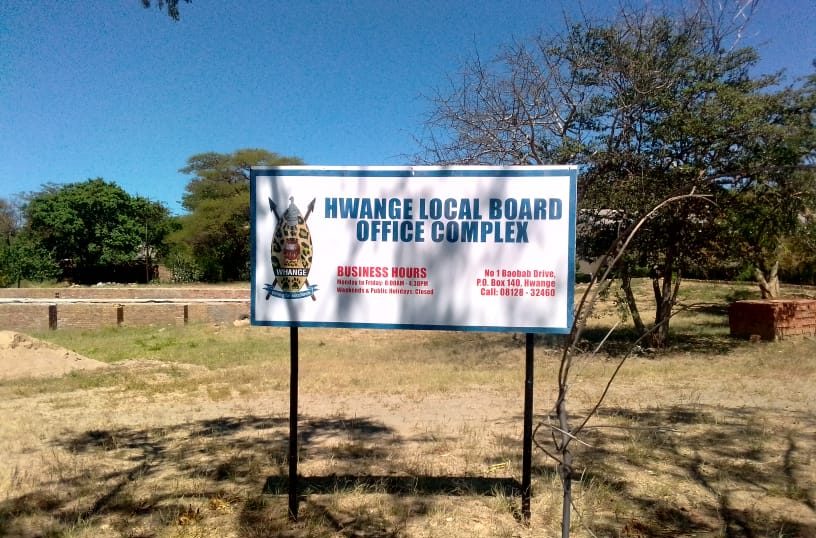
BY CALVIN MANIKA
Pauline Banda, a young woman in her early thirties sits attentively at a roadside vegetable market in Lwendulu, a high-density suburb in the colliery town of Hwange.
She sits under the scorching sun watchful of any suspicious movement by her fellow vendors — a potential signal of the presence of police officers.
The roadside markets are unregulated.
After two years in the trade and numerous arrests by the Hwange Colliery and Zimbabwe Republic Police, Banda is contemplating on migration in search of better opportunities.
“After finishing my A Level, I went for a certificate in Hotel Catering and Food Technology,” Banda said.
“But, since then, I have never been employed despite several attempts in different mining companies.
“I now want to go to Victoria Falls, maybe I will get a job.”
- Chamisa under fire over US$120K donation
- Mavhunga puts DeMbare into Chibuku quarterfinals
- Pension funds bet on Cabora Bassa oilfields
- Councils defy govt fire tender directive
Keep Reading
Hwange is dominated by coal mining companies. Mining companies’ world over provide job opportunities to both the educated and uneducated members of the community.
But young women in Hwange are struggling to penetrate the industry.
Zimbabwe Diamond and Allied Minerals Workers Union (ZDAMWU) secretary general Justice Chinhema noted that the mining sector was male dominated.
“We feel there is a need to break this barrier. It is worse in Hwange; you hardly see female workers engaged,” Chinhema said.
“The few women in jobs are mostly employed as guards, janitors or general hands.
The economic challenges in the country faced by many young people are forcing young women into migration.
Research by this publication indicated that, both in urban and rural areas, young women are leaving the town and villages to look for greener pastures in Victoria Falls, Bulawayo, and South Africa.
Trade unions based in Hwange have bemoaned this situation where many local mining companies are not closing the job inequality gap.
Chinhema said gone were the days when work was allocated on gender basis.
“These days there is no work that women cannot take,” he said.
“Gender equality has to be applied and every person, if qualified for a job, should be given an opportunity.
“As ZDAMWU, we have created a woman, youth and gender department to promote gender equality, equity and empowerment of women and young workers in the mining industry.
“It is also pushing for the ratification of the International Labour Organisation convention 190 which deals with sexual harassment.”
The 8th Zimbabwe Vulnerability Assessment Committee (ZimVAC) 2020 — Urban Livelihoods Assessment noted that urban areas provide several socio-economic opportunities for many people but are also becoming increasingly precarious places to live in, especially for low-income residents.
The Covid-19 pandemic and its debilitating impact on livelihoods has exacerbated the situation by eroding community coping capacities.
The assessment revealed that the proportion of female headed households in 2020 was 50%, an increase from 2019 (26%).
The proportion of households’ heads who were not employed increased to 49% from 29% in 2019 and there was a decrease in the proportion of household heads who were formally employed from 36% (2019) to 20% in 2020.
Sifiso Moyo, a young mother described how an early pregnancy halted her dreams leaving her without many options; she had to leave her baby soon after birth and seek opportunities outside the country.
“I could not find a job locally,” Moyo said.
“ So, I did some piece jobs until I obtained a passport. When I went to South Africa, I left my child with my grandmother.
“I support the family back home.”
Another young mother Sibongile Ncube said, after several attempts of visting the Chinese mining companies to no avail she thought of migrating to Bulawayo. However, again, things are not rosy.
“I am working as a babysitter in Bulawayo,” Ncube said.
“ I am being underpaid, so I cannot afford all the needs of my two children and my widowed mother.
“My mother gets a paltry monthly pension allowance.”
ZDAMWU said another repelling factor for young women in local mines is fear of sexual harassment.
“We have been receiving complaints of sexual harassment perpetrated against female workers,” Chinhema said.
“And by creating the department of gender, we have created a platform for all women working in the mining sector to report those abuses.
“In Hwange district only 1% of the employed workers are women and the abuse is so rampant.”
Greater Hwange Residents Association chairperson Fidelis Chima acknowledged that Hwange has job opportunities considering the number of coal mining companies that are mushrooming in Hwange.
“However, the challenge is that the working conditions are toxic, and salaries are poor. If these companies are to pay reasonable salaries and improve working conditions our young women will get opportunities,” Chima said.
*This article was originally published by The Citizen Bulletin, a nonprofit news organization that produces hard-hitting, hyperlocal reporting and analysis for the southwestern region of Matabeleland.










